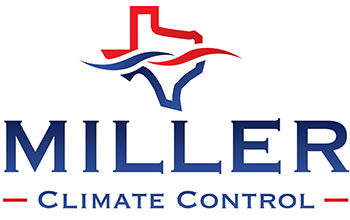
Significant changes are on the horizon for the heating and cooling industry! Cooling systems shifting from R-410a to newer refrigerants like R-454B refrigerant and R-32 refrigerant will be arriving in 2025. These new coolants are developed to be friendlier to the environment and satisfy new regulations about global warming. But what does that mean for your current HVAC system and any new services?
This shift will reduce the environmental footprint of our air conditioning systems. In 2025, new AC systems will utilize an alternative class of refrigerants that more closely match with climate goals. If you're thinking about getting an AC replacement soon, this is the perfect time to learn more about how these changes can affect your home's comfort.
Why Exactly Is R-410a Being Phased Out?
For a long time, R-410a was the preferred refrigerant for residential air conditioners because it worked so well. But studies uncovered that R-410a still contributes to global warming. Because of this, the Environmental Protection Agency (EPA) established a strategy back in 2021. The industry will steadily phase out R-410a to introduce refrigerants that are more environmentally friendly.
The HVAC industry has made changes like this before. When the industry moved away from using R-22 (commonly called Freon) to R-410a, residents like you had to adjust. And in the same way, this shift will influence how systems are constructed as well as the best practices for HVAC maintenance. Both homeowners and HVAC technicians need to prepare for these new refrigerants if they want to keep experiencing the safest, most economical cooling possible.
New HVAC Refrigerants Replacing R-410a?
The upcoming refrigerants fall under the new "A2L" classification and encompass the newest R-454B refrigerant and R-32 refrigerant coolants. They're developed to deliver the same efficient cooling while substantially decreasing their global warming potential (GWP) compared to R-410a.
R-454B refrigerant is anticipated to be especially efficient due to its GWP being around 78% less than R-410a. While R-454B refrigerant is believed to be more flammable than R-410a, enhancements to system configurations and maintenance practices will ensure servicing is just as safe to perform. Additionally, modern cooling systems using R-454B refrigerant are considerably more energy efficient, resulting in considerable savings on energy bills over time, especially if you keep up with routine HVAC maintenance.
This transition isn't simply about swapping out the refrigerant—it affects the whole HVAC system because the components of R-454B refrigerant make it not suitable for use in older systems. Ultimately, every home and business using R-410a will need to upgrade to one of the new systems.
R-410a Replacement: What Do I Need to Do to Change to New HVAC Refrigerants?
Changing to the new refrigerants isn't as simple as swapping out the new coolants with what's used in your home's HVAC system. That's because the distinct properties of R-454B refrigerant and R-32 refrigerant mean you can't use them in a system that uses R-410a. But don't be concerned—you can continue to use your current R-410a system for now. Just know that as time goes on, the cost of repairs and tune-ups will rise as R-410a becomes less available.
Planning ahead is the most effective way to stay on top of things. If your AC system is currently getting old, this is the best time to consider investing in a newer model that uses the new R-454B refrigerant. Plus, the HVAC specialists here at Miller Climate Control LLC can help you in upgrading with flexible options for HVAC replacement financing.
Which HVAC Refrigerant Is in My Air Conditioner?
Uncertain which refrigerant your AC system uses? In general, you can easily learn this information by checking the label on your outdoor unit. This label shows the type of refrigerant, the model number and numerous other particulars about your cooling system.
But if you can't read the label or don't have your user manual, don't stress! You can always call one of the expert technicians at Miller Climate Control LLC to help you in identifying the refrigerant. Get all the information you need by giving us a call at 512-379-6873.

